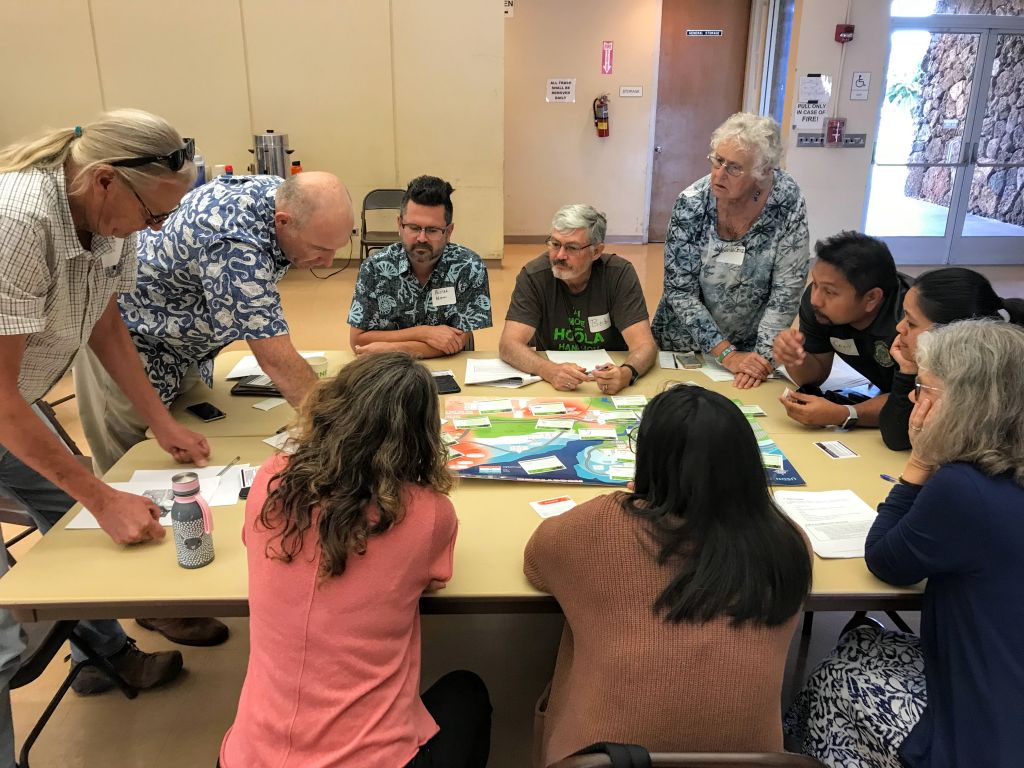
NOAA’s Sea Grant and Disaster Preparedness Programs help address disaster impacts and recovery with three new projects
June 23, 2022
(Honolulu, HI) – Hurricanes. Flood events. Oil spills. When disaster strikes, communities come together to respond. NOAA Sea Grant and NOAA’s Disaster Preparedness Program are partnering to help communities respond to and recover from these occurrences through three projects that strengthen local preparedness measures.
“While natural or human-caused disasters are not always preventable, we can work together to increase preparedness for such events,” stated National Sea Grant College Program director Jonathan Pennock. “The projects announced today will enable coastal and Great Lakes communities to lessen disaster impacts and reach post-disaster recovery more quickly.”
The selected projects, which are led by Hawai’i Sea Grant, MIT Sea Grant and Wisconsin Sea Grant, will be awarded a total of $540,000 in federal funds over two years.
Hawai’i Sea Grant will work with government and community stakeholders to develop a pre-disaster recovery plan for commercial, residential and infrastructure reconstruction in the county of Kaua`i as it relates to catastrophic disasters, such as hurricanes and tsunamis, and chronic climate change hazards, like sea level rise. Project activities include providing outreach to encourage collaboration between government, non-government and community organizations and working with vulnerable and underserved communities to develop post-disaster redevelopment scenarios that increase resilience for the next disaster.
MIT Sea Grant will work with the Mashpee Wampanoag Tribe to develop a disaster response plan and training program to prepare for a potential oil spill, with specific attention on protecting shellfish aquaculture operations. Aquaculture is integral to the Mashpee Wampanoag Tribe and a plan for swift and effective response to an oil spill is necessary for mitigating cultural and financial impacts. The resulting products will also be developed for extension to other aquaculture-reliant communities.
MIT Sea Grant will work with the Mashpee Wampanoag Tribe to develop a disaster response plan and training program to prepare for a potential oil spill, with specific attention on protecting shellfish aquaculture operations. Aquaculture is integral to the Mashpee Wampanoag Tribe and a plan for swift and effective response to an oil spill is necessary for mitigating cultural and financial impacts. The resulting products will also be developed for extension to other aquaculture-reliant communities.
“The Disaster Preparedness Program is focused on preparing NOAA’s National Ocean Service, partners, and coastal communities to effectively prepare for, respond to, and recover from all hazards,” says Kate Wheelock, chief of the Disaster Preparedness Program. “This partnership with Sea Grant programs allows us to consolidate our resources to reduce the effects of disasters on vulnerable communities and maximize our impact where it is needed most.”
The University of Hawai‘i Sea Grant College Program is part of the University of Hawai‘i at Mānoa’s prestigious School of Ocean and Earth Science and Technology. It supports an innovative program of research, education, and extension services directed to increasing sustainability of coastal and marine resources and resilience of coastal communities of the state, region, and nation. Science serving Hawai‘i and the Pacific since 1968.

